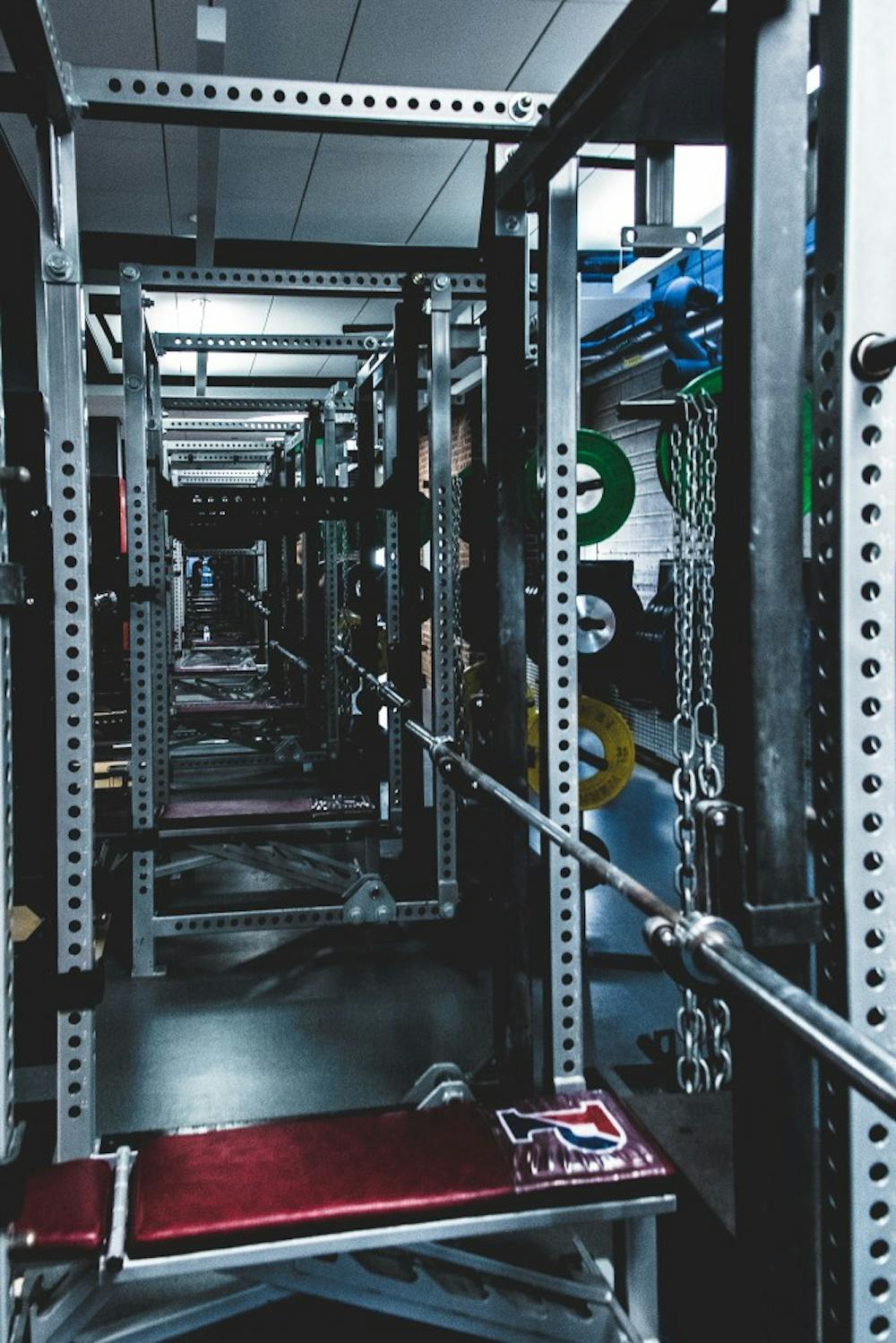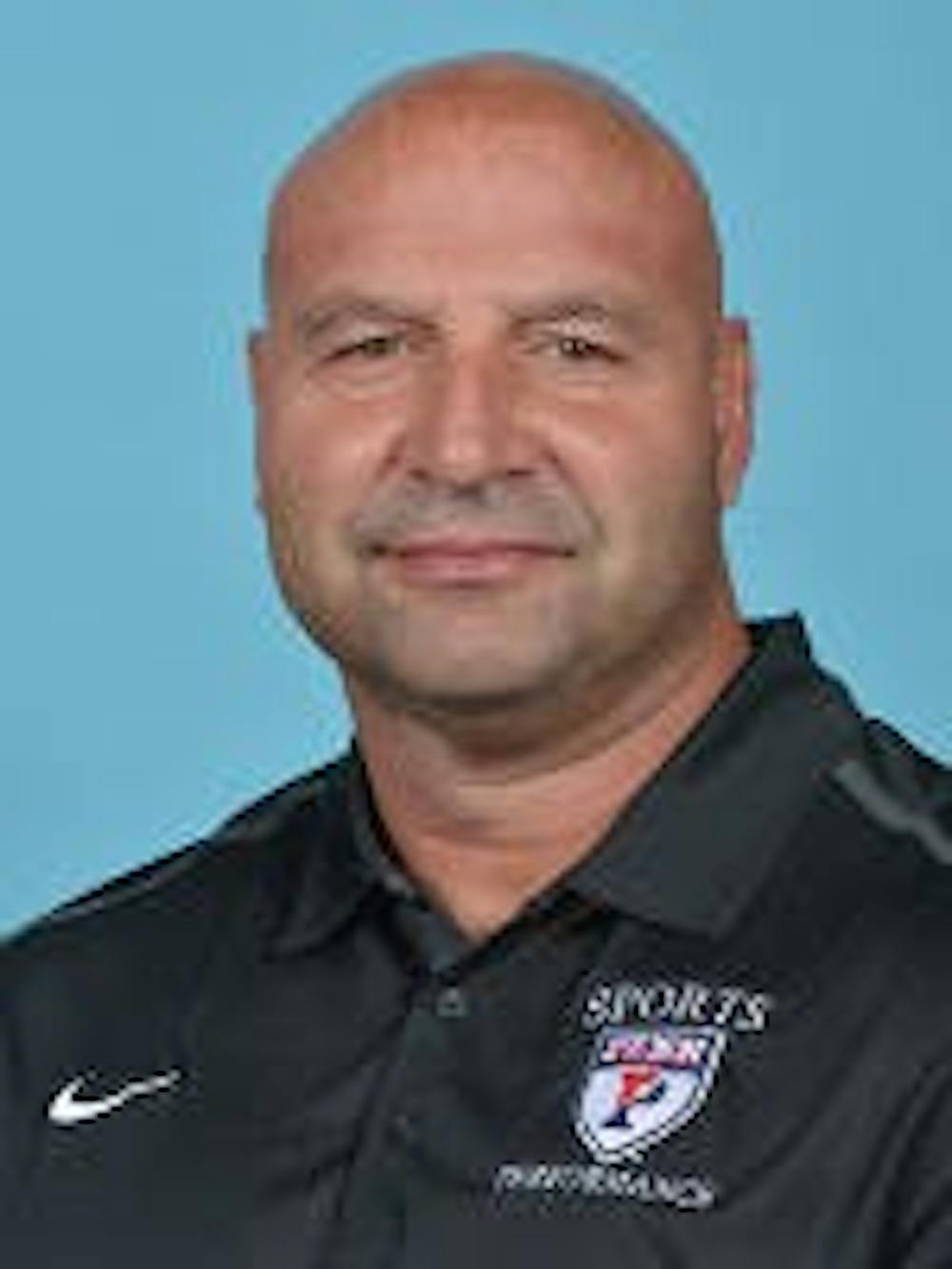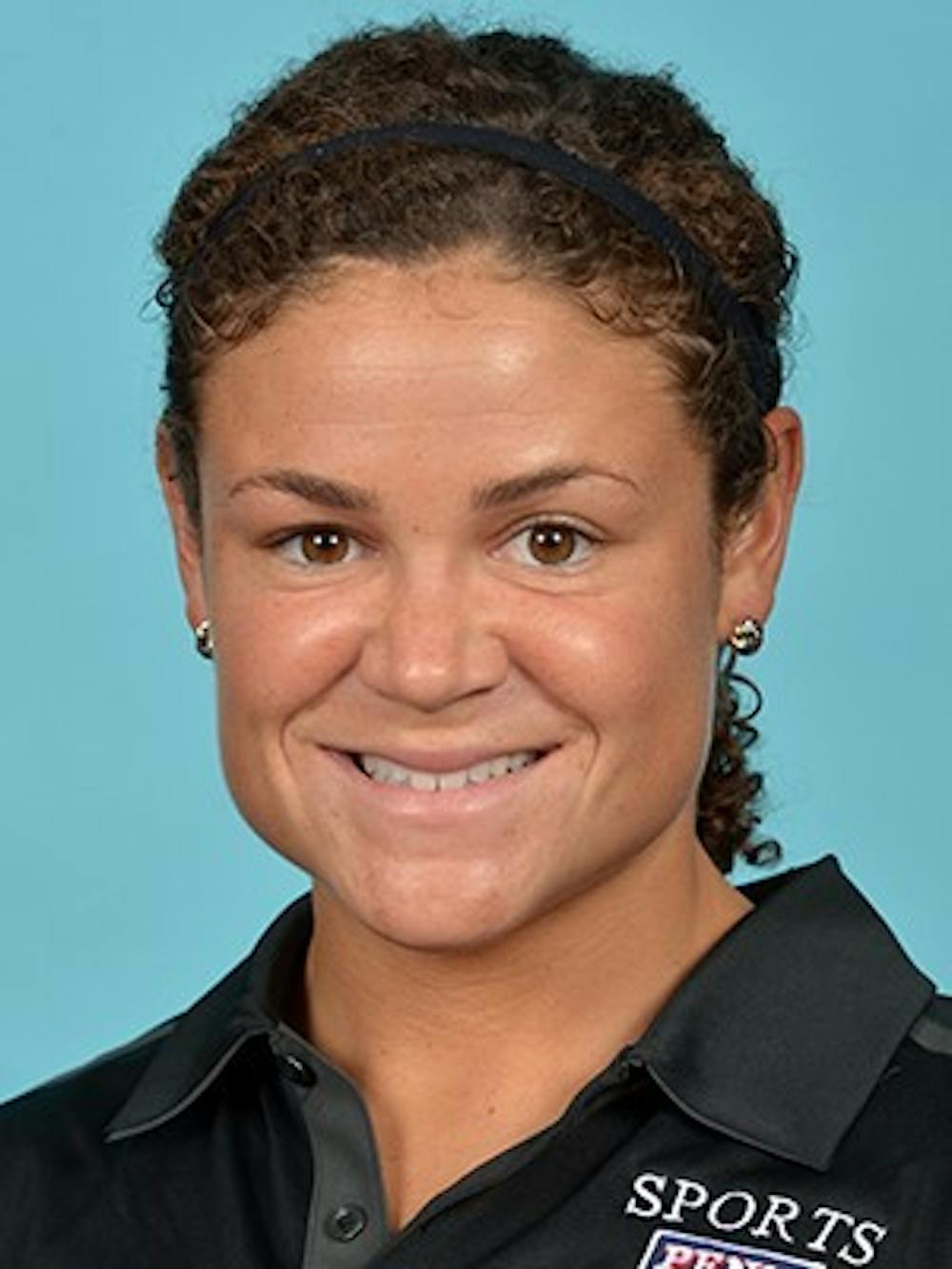
Penn Athletics is down to just two strength coaches while seven spring teams continue their postseason pushes.
Credit: Alec DrugganOn May 6, just over a month after he was hired, Penn Director of Strength and Conditioning Cory Walts announced that he will replace nearly his entire staff.
“I have been given the opportunity to bring in and develop a team which I believe will be most optimal to lead the Strength and Conditioning program into the future. After careful consideration and deliberation, I have decided that it is best to conduct a full-scale national search to find the optimal team to accomplish that vision,” Walts wrote in an email sent to all Penn student-athletes.

Cory Walts
According to multiple sources, including both current athletes and Penn Athletics staff, all three of Penn’s full-time strength and conditioning coaches, Stephen Brindle, Tracy Zimmer, and Cristi Bartlett, were fired in a meeting early Monday morning. Combined, the three have coached at Penn for 25 years; each has spent at least the last seven years working in Penn’s weight room. All three have master's degrees.
This left Walts and one part-time strength coach, Pat Dolan, to work with the seven teams that are continuing to compete this spring.
Zimmer, Bartlett, Brindle, and Dolan declined to comment.

Stephen Brindle
“The Strength and Conditioning program is integral in helping Penn student-athletes reach their highest potential both physically and mentally. In order to carry out my vision of holistic growth and collaboration, I felt that it was best to bring in and develop an optimal team that is committed to leading the program into the future,” Walts wrote in an emailed comment through Penn Athletics.
“The Strength and Conditioning team will be aligned on key attributes which include positive energy, a growth mindset and relationship-building while having a diverse skill-set and perspective. My immediate priority is to find amazing individuals to be a part of this dynamic team committed to excellence and the growth of Penn Athletics.
“This team will be in place and ready to go for the fall semester.”
The move comes after former head strength coach Jim Steel resigned from Penn Athletics after 20 years in January. In a statement to The Daily Pennsylvanian, Steel indicated that his resignation was a result of an ongoing dispute with the Penn Athletics administration.
“Exactly what happened is that the Sports Performance administration and I didn't see eye-to-eye on the best way to run the strength and conditioning program," he wrote. “I really love the athletes at Penn and will miss them.”

Upon leaving, Steel expressed frustration over the intrusive role that coaches and administrators played in the strength and conditioning program in a post on his personal blog, Bas’ Barbell.
Steel, several current Penn Athletics sports performance staffers, and several athletes, including women’s rowers Sophia Poersch and Leila Ashtaryeh, expressed confusion at the decision and its timing.
“It’s tough to justify why you would let people go, when just about everybody wins and injuries are way, way down — and the athletes are happy. So what would be the reason? It doesn’t make much sense,” Steel said.
“The biggest problem my team had with it is that we have two weeks left in our season. I know that my team has the longest season that goes the latest, but it’s kind of abrupt and not the greatest timing. Two weeks before our conference championships to fire a coach and make her leave? It probably would have been more convenient at the end of the season,” Ashtaryeh said.
“None of us thought there was a problem with the [old] strength and conditioning coaches, we loved our coach [Zimmer] so much. We saw her as one of the few people in the corner of the athletes that was trying to advocate for us.”

Jim Steel
“I really don’t know why [they would do it now.] It really doesn’t take into consideration how the athletes see it,” Steel said. “Why wouldn’t a coach say ‘Hey, wait a minute, we’re winning here. Can we wait a while for us to finish the season, because, you know, we’re No. 3 in the country,’ which men’s lacrosse is. Who knows?”
One potential reason for the timing could be to accommodate the Collegiate Strength and Conditioning Coaches Association national conference. The CSCCA is among the premier strength and conditioning coaching associations, and the national conference, held from May 8-10, would give the newly fired coaches a chance to network and Penn Athletics a chance to start its "national search."
Steel suggested that the decision came at least in part from Associate Athletic Director for Sports Performance Andrea Wieland. He cited philosophical and personal differences as the reasons why he left and why the rest of the strength coaches were fired.
Steel portrayed himself and his former staff as old-fashioned straight shooters who knew what they were doing and did things the 'right way.' He says that attitude didn’t mesh well with that of the administrators, including Wieland, who, according to Steel, are more interested in gimmicks and meetings.
“I would say [there was a personality conflict] between my staff and the new hires and the administration — no question,” Steel said. “Because we would be like, ‘No, that’s not right.’ ‘We’ve already been doing that for 10 years.’ My staff doesn’t take any shit, they’ll tell you if it’s wrong, but if they’re wrong, they will say ‘Good point.’ That’s it. ‘Let me look it up because I need to know.’ The most cut and dry people in the whole department was us.”
Several current Penn Athletics sports performance staffers and several athletes have confirmed that characterization of the strength coaches. The athletes say that the strength coaches were honest and caring even when their team coaches weren’t.

Tracy Zimmer
“Tracy [Zimmer] seemed to actually care, and that resonates with a lot of people. She’s a fun person to be around. She’s very serious and like ‘Get your work done’ sort of like in a joking way. We appreciated that,” Ashtaryeh said.
The popularity of the strength coaches was unanimous among the athletes interviewed for this story. One women’s rower even went as far as to write a letter of recommendation on Zimmer’s behalf for a job she had applied to months ago.
“They’re looking for a fresh start? Why? They’re looking for a fresh start from what? Because it wasn’t good? Because what — a personality conflict? I thought we were there for results,” Steel said. “I think the ultimate plan and goal is to get people who agree with everything that they say. Some people don’t like to be challenged. They take it as a personal affront.”
For the teams still preparing for competition this spring — the three rowing teams, men’s and women’s lacrosse, and men’s and women’s track — the change has meant an adjustment to routine during a crucial part of the season. Lacrosse and track are in the postseason, while rowing has only two weeks before their conference championships.
“Now our lifts are completely different. It’s kind of a waste of time now because [Walts] been spending all of lift on these exercises we’ve never done before, which seems kind of silly to me,” Ashtaryeh said.
“It seems like Cory Walts has come in and doesn’t really know us. He hasn’t tried to learn our names while he’s coaching us, and it’s all very abrupt. It feels kind of disrespectful, not just to us but to the strength and conditioning coaches.”
“I’m happy, in a way, that [the strength coaches] are out of that toxic environment,” Steel said. “They need to get to a place where they’re appreciated, where they can at least make money where they can live — they’re making [about] $40,000 a year. They have their master's [degrees] and 10 years of experience. So it’s better — it forces them to find a place where they’re loved and appreciated.”
The Daily Pennsylvanian is an independent, student-run newspaper. Please consider making a donation to support the coverage that shapes the University. Your generosity ensures a future of strong journalism at Penn.
Donate



